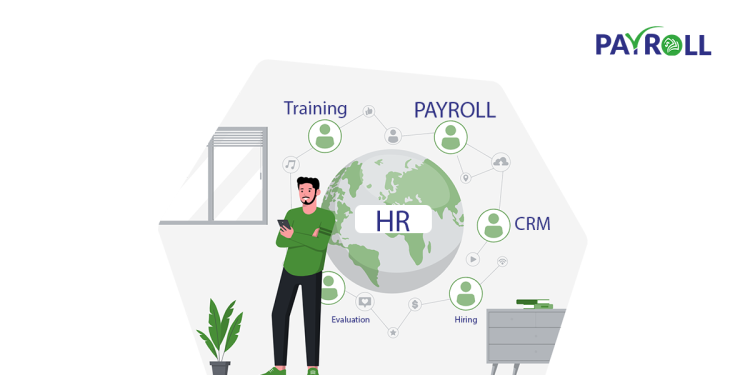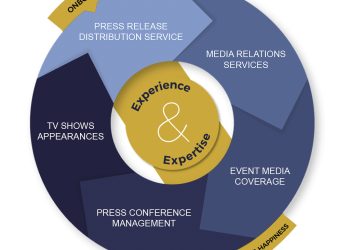The HR and payroll departments have separate functions but are linked because they are people in the company. The payroll department is responsible for paying and calculating the taxes that need to be withheld each month. In contrast, the HR department manages many processes related to employee compensation, such as pay raises, bonuses, incentives, vacation, and time off.
We often hear that payroll should be part of the finance function, not the HR function. Payroll specialists process and calculate payments, so that should be part of the finance department, right? The payroll department is responsible for many important financial tasks, such as bonuses and tax law changes. Many people consider payroll to be part of finance for these tasks alone.
Payroll from the HR department’s perspective
For many HR professionals, payroll is one of the many tasks they must perform. The argument that payroll should stay in HR is often exactly the same as the argument that recruiting, training, development, compensation, and benefits should stay in HR.
HR Responsibilities
- Companies must maintain employee confidentiality at the HR level, HR department must handle the payroll.
- The HR department is primarily responsible for employee relations. This means that if there are problems with payroll, the HR department should be responsible.
- The HR department is in the best position to manage payroll because much of the payroll data has derived from HR activities such as hiring, firing, promotions, unpaid leave, benefits, and deductions.
- The HR department is responsible for employment law tasks such as payroll, medical, and leave (educational leave) and is responsible for much of the payroll compliance.
What is the relationship between payroll and the HR department?
Regardless of the company’s structure, the payroll department must work closely with the human resources department. For example, there is a lot of overlap between HR and payroll.
- Salary negotiations
- Negotiation and administration of employee benefits
- Benefits negotiations and administration
- Payroll receivables
Ultimately, the two departments have different approaches and roles in these and other issues. Let’s take a closer look.
When the two functions overlap
Payroll issues are often tied to HR issues, so payroll and HR departments must coordinate their joint functions. These include hiring, salary increases, bonuses, bonus reductions, paid time off, and terminations. The HR department must be mindful of the time they spend on payroll. They are responsible for employee relations and face immediate problems if payroll is not processed correctly and promptly.
Payroll and HR staff also have access to sensitive employee information, such as financial information, national insurance numbers, and home addresses. Both departments must work together to ensure that this information does not fall into the hands of unauthorized individuals or companies.
To improve cooperation between HR and payroll in companies, it is necessary to have
A reliable payroll department and a functional HR department are essential. However, it is equally important that these two departments work together and collaborate effectively in a company. Find out how HR and payroll departments can work together.
The Great Divide
In many companies, the payroll function is entrusted either to the finance department or to the human resources department. This is because payroll depends on numbers and requires knowledge of tax law and accounting. Many respondents, therefore, felt that this function should be assigned to the finance department.
At the same time, payroll works as a function of the human resources department, as it deals with payments and relationships with people. Let’s take the example of maternity benefits. From the HR department’s perspective, the company must protect the rights of its employees and comply with federal and state anti-discrimination and maternity protection laws. At the same time, employees must be paid according to company policy, which is an economic function.
How can the interaction between HR and payroll in companies be improved?
A stable payroll department and a functional HR department are essential. However, it is equally important that both parties work together and function effectively. Here’s how to know exactly how your HR and payroll departments work together.
Maintain clear communication
Each part of the business needs to maintain clear communication. The relationship between payroll and HR is no exception, and HR and payroll personnel must maintain clear communication at all times to avoid information leaks.
Implement a centralized data management system
Another way to simplify the relationship between HR and payroll is implementing a single system to manage all employee information. For example, a robust HR software platform that can store payroll data is a great way to ensure everyone is on the same page. If HR or payroll staff need access to critical data, they can simply log into a shared database.
Conclusion.
Collaboration between HR and payroll is not only helpful; it’s essential.
When HR and payroll teams work together, understand each other’s roles, and use the right tools, they can collaborate better, create more efficient and accurate processes, and ultimately positively impact the business and its employees. If companies implement these collaboration strategies correctly, HR and payroll professionals can maximize their time supporting their employees and minimize their administrative burden.
Author Bio
Tina J. Wagner Phillips is a 31-year-old She enjoys Accounting, working on payroll automation, and bookkeeping. She has a degree in accounting, politics, and economics, obsessed with films and tank tops.
















